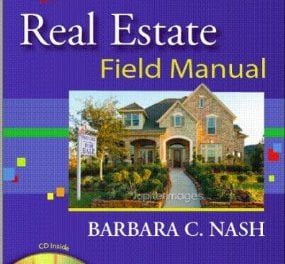Easement
Exclusive easement prohibits all use by property owner
Reported by Bradley Markano
The Covenants, Conditions and Restrictions (CC&Rs) of an owner’s property granted a neighbor an exclusive access easement. The property owner burdened with the easement frequently used the easement for the passage of horses and the transportation of feed and rubbish, but did not hinder the neighbor’s use of the easement. The neighbor sued to quiet title to the easement, claiming the owner was prohibited from using the easement since its use was exclusive to the neighbor. The owner claimed the exclusivity of the easement did not apply to him since it is a general rule that the owner of property subject to an easement may continue to use the easement as long as he does not hinder the neighbor’s use of the easement. A California appeals court held the owner was prohibited from making any use of the easement since the owner’s use would violate the exclusivity of the neighbor’s easement as set out in the CC&Rs. [Gray v. McCormick (October 23, 2008)167 CA4th 1019]
Landlording
Rent control rate restrictions cannot be waived by the tenant
Reported by Bradley Markano
The owner of a single family residence converted his property into two separate units. The owner lived in one unit of the bifurcated residence and entered into a written lease with a tenant for the occupancy of the other unit. Later, the owner and tenant agreed in a settlement agreement to resolve a dispute by an increase in rent which exceeded the city Rent Stabilization Ordinance (RSO) limitation on rent increases for a duplex. The tenant discovered his unit was subject to the RSO and sued to recover rent payments from the owner, claiming he was eligible to have the amount of his payments over the allowable rent increase refunded since the owner’s increase was illegal under the RSO. The owner claimed the RSO did not prohibit the rent increase since the change in the rent had been agreed upon in a settlement agreement. A California appeals court held the tenant was eligible to recover the rent he had paid in excess of the amounts permitted by rent control since the rent increase violated the RSO, and was thus unenforceable regardless of the willingness of the two parties to agree to a higher rent when settling a dispute. [Gombiner v. Swartz (October 29, 2008)167 CA4th 1365]
Mechanic’s liens
Mechanic’s lien for unpaid rental equipment used to remove structures is valid
Reported by Nick Love
A property owner rented equipment to remove structures from his property, but failed to pay the rental company. The rental company recorded a mechanic’s lien against the owner’s property for the amount owed. The property owner claimed the mechanic’s lien was invalid since a mechanic’s lien can only apply to works of improvement that benefit the property and the rental equipment was used to remove structures, not to construct improvements. The rental company claimed the mechanic’s lien was valid since the removal of structures from a property is included in the statutory definition of improvements which allows for a lien on a property for unpaid rent of equipment used to remove structures. A California appeals court held the mechanic’s lien for unpaid rent on equipment leased and used to remove structures from a property was valid since works of improvement include the removal of structures, not simply additions to a property. [United Rentals Northwest, Inc. v. Snider Lumber Products, Inc. (June 18, 2009) __CA4th___]
Title issues
Unauthorized quitclaim deed conveyance during bankruptcy does not transfer title after bankruptcy
Reported by Nick Love
An owner of property encumbered by a judgment lien filed a chapter 7 bankruptcy petition. While in bankruptcy, and without authorization from the bankruptcy court, he transferred title of the property to his relative by a recorded quitclaim deed. After the bankruptcy petition was closed, the judgment lienholder extended the lien for another ten years but failed to fulfill a statutory obligation to notify the relative who held title. Later the lienholder sought to foreclose his judgment lien claiming the transfer of title by quitclaim deed to the relative was invalid, releasing the lienholder of any obligation to give notice since the property was part of the bankruptcy estate at the time of the transfer. The relative claimed the quitclaim deed became effective on closing of bankruptcy, perfecting his interest in the property and that the extension of the lien had no effect on his ownership interest in title as he was not given notice of the extension. A California appeals court held the grantee under the quitclaim deed recorded during the bankruptcy proceedings held no interest in the property and the judgment lienholder could foreclose on his extended lien against the true owner of the property since an owner in bankruptcy cannot transfer title to a property without authorization from the bankruptcy court and an unauthorized quitclaim deed (unlike an unauthorized grant deed) does not transfer title after the close of a bankruptcy petition. [Johnson v. E-Z Insurance Brokerage, Inc. (June 22, 2009) __CA4th___]
Zoning
City zoning ordinance not subject to direct challenges; get the permit first
Reported by Bradley Markano
A developer wished to develop a property. A city zoning ordinance required a portion of the property to be set aside for subsidized housing. The city sought to enforce the subsidized housing zoning ordinance. The developer challenged the ordinance, claiming it constituted a taking, and was invalid since the city had not established a connection between the ordinance and the city’s lack of subsidized housing. The city claimed the developer’s challenge was invalid since a connection between application of the ordinance and the city’s need for subsidized housing would only apply in judicial review of an individual land use permit, not a city ordinance. A California appeals court held the ordinance was valid since connection between the city’s need for housing and the requirements of the ordinance is a proportionality issue, and is thus not a requirement for the enforceability of general zoning ordinances. [Action Apartment Association v. City of Santa Monica et. al. (August 28, 2008) 166 CA4th 456 ]

















